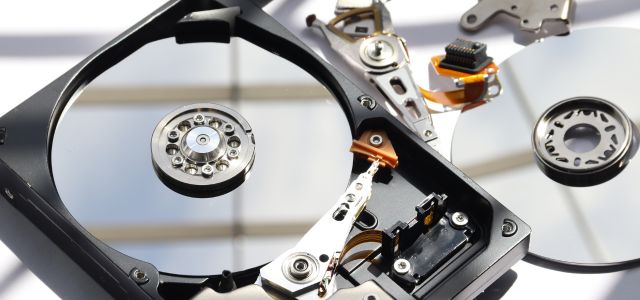Many remarkable legal actions have been taken on behalf of MR Technologies GmbH. Recently, it proved to be victorious in a dispute against Western Digital Technologies Inc. by defending its IP at the US District Court for the Central District of California. Specifically, the court resolved a patent infringement case in favor of MR Technologies, which was a major victory for protecting innovation in the competitive data storage industry. The case was filed on 26 August 2022 (case number: 8:2022cv01599), and the four patents at the center of the proceedings were essential in improving HDD performance through magnetic recording media technology.
Overview of the patents
The patents concern the improvements to the magnetic recording media to increase storage density and thermal stability and enhance the general performance of HDDs. The patents describe multilayer constructions and fabrication techniques that provide higher data density and improved resistance in severe usage conditions.
The patents are the fruits of years of research and development of MR Technologies in improving the data storage solutions, especially given the constantly increasing demand for higher capacity, reliability, and efficiency of HDDs.
Legal findings and judgment
After several legal processes and motions, it was decided that Western Digital had violated MR Technologies’ patents.
The key findings were:
- Patent infringement: The court found that Western Digital had infringed and utilized MR Technologies’ patented technology in its products.
- Validity of patents: All attempts made by Western Digital to invalidate MR Technologies’ patent were rejected. The patents’ validity was affirmed by the court, as it established the infringement of MR Technologies’ patents as legitimate and not involving copying from other sources and, thus, secured MR Technologies’ reputation as the major pioneer of magnetic recording technology.
Subsequently, the court granted MR Technologies compensatory damages against Western Digital, finding the latter financially responsible for the prohibited use of the former’s patented technologies. The exact amount was not disclosed, but this kind of judgment is likely to have severe repercussions for Western Digital.
The judgment of the court will have significant implications for Western Digital’s operations and its future planning. In addition to paying compensatory damages, Western Digital will need to address the following:
- Product redesigns: Western Digital may be forced to redesign some of its products to avoid violating MR Technologies patents. This could mean shifting its HDD product line or the integration of different technologies.
- Licensing agreements: Another possible scenario could be the ongoing licensing of the patented technology to Western Digital and a legal agreement with MR Technologies to utilize it in its products. This would likely be accompanied by regular royalty remittances, adding pressure to the burden already felt.
- Market standing: The legal loss may impact Western Digital’s standing in the market due to the resistance shared by Western Digital. As MR Technologies has now successfully defended its ideas, patents, and inventions, it is now in a better position to competitively oppose other data storage companies in the market. The decision may encourage other firms to be more cautious when developing new products that could slightly resemble existing patents.
Industry-wide impact
This case has brought not only objective consequences of losses but also more general consequences for the high-tech industry, including concerns about proprietary rights and patents. The decision has clear implications for firms in the technology sector on the need to respect patent rights, especially when searching for infringement on any existing technologies.
Setting a precedent
This decision will be useful when other comparable patent disputes come up in the future. Thus, companies that invest in fundamental science should appreciate this decision that emphasizes the importance of patents and the protection of new inventions and technologies.
Encouraging innovation
Deeming MR Technologies’ patents as valid, the court has acted in the interest of innovation. Enterprises are more likely to invest in new technologies when they understand that their invented technologies cannot be utilized by another enterprise without prior permission.
Legal and financial consequences
For other players, such as Western Digital, this case provides a hard lesson on the legal and financial consequences of infringing patents. In addition to the cost of damages, these cases often require redesigning products, negotiation with licensing, and even loss of reputation in the market.
Conclusion
The litigation between MR Technologies and Western Digital emphasizes the importance of protecting IP in the technological field. After four patents were validated and non-violation confirmed, MR Technologies has become a strong player in the market of magnetic recording media. The court’s decision also serves as a clear message to companies to be very cautious when it comes to patent infringement. The decision is likely to have a far-reaching effect, affecting how other patents will be litigated in the future.

Written by Srinivas Maddipati
IPR Attorney, Eeva Patent Services
You may also like…
China’s push to lead AI-driven communication: patents, innovation, and global competition
On a technical level, one of the most significant trends in the global information and communication industry today is...
Director Review reverses PTAB decision based on contradictory expert testimony in Interactive Communications v. Blackhawk Network Inc.
The USPTO Director's recent reversal of a Patent Trial and Appeal Board (PTAB) Final Written Decision in Interactive...
Survival of the fittest: Strava sues Garmin for patent infringement
Fitness app company Strava has recently made waves in the running and cycling communities after suing Garmin for...
Contact us to write for out Newsletter














